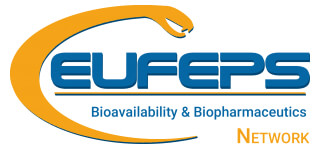Cooperation Partners
The Frankfurt Foundation Quality of Medicines is well networked nationally and internationally.
The focus is on cooperation with universities and associations in the field of pharmaceutical sciences in order to include the entire range of research expertise with the aim of identifying suitable funding projects and scholarship holders.
The cooperation partners are:

German Pharmaceutical Society (Deutsche Pharmazeutische Gesellschaft, DPhG)
The goals of the German Pharmaceutical Society are:
- promoting science in all areas of pharmacy
- promoting the cooperation of all pharmaceutical disciplines inside and outside the DPhG
- promoting experimental pharmaceutical research and
- promotion of scientifically oriented advanced training in all pharmaceutically relevant areas.
The German Pharmaceutical Society would like to disseminate information about important, future-oriented new developments, give statements on current problems of public interest from a pharmaceutical-scientific point of view, represent scientific pharmacy to the legislature and its executive bodies, advise authorities on questions of pharmaceutical training and questions about drugs, as well as maintain contacts with other national and international scientific societies of pharmacy.
In view of these principles and with relevant overlaps with the goals of the Frankfurt Foundation Quality of Medicines an intensive collaboration on technical issues and research funding projects was agreed.

European Federation for Pharmaceutical Scientists (EUFEPS)
The European Federation for Pharmaceutical Scientists (EUFEPS) is a pan-European specialist society in which the interests of pharmaceutical scientists from industry, universities, authorities and other testing facilities and research institutions are brought together. It sees itself as „the voice“ of all pharmaceutical scientists in Europe and supports them in their scientific ambitions and research activities.
The EUFEPS Network Bioavailability and Biopharmaceutics has set itself the goal of accompanying the development and revision of guidelines on drug quality in close cooperation with the scientists of the European regulatory authorities and supporting them with scientific contributions. In this context, the network started the Global Bioequivalence Harmonization Initiative, which is supported by the European Medicines Agency (EMA) and the American Food and Drug Administration (US-FDA) as well as other international authorities. So far, the initiative has held four international conferences on the harmonization of bioequivalence criteria.
German Plattform NanoBioMedicines (Deutsche Plattform NanoBioMedizin)
Despite immense advances in modern medicine, there is still a great need for new diagnostic and therapeutic innovations in order to be able to diagnose diseases earlier and more specifically and to treat them better and more cost-effectively.
A key technology on this path is nanotechnology, because on the one hand it provides the instruments for an even more detailed analysis and the resulting better understanding of the causes and processes of diseases, and on the other hand it provides the materials to be able to treat diseases in a more targeted manner.
Megatrends such as personalized or regenerative medicine cannot be realized without nanotechnological solutions.
The integration of nanotechnology in biomedical applications, or NanoBioMedicine for short, requires new research discipline-wide concepts and value chains. To this end, technology developers from the fields of materials science, chemistry, biology and physics must work together with medical users such as pharmacists, clinicians and industrial companies in order to ultimately be able to bring needs-based innovations for patients to the market. A German NanoBioMedicine platform has been founded as a framework for the necessary dialogue between all these actors. The goal that is to be achieved with this platform is an integrated research funding from nanomaterial development to the clinic, with which the potential in German NanoBioMedicine can be further developed through sustainable research topics and structures. A leading position in Germany in this future technology is to be achieved and consolidated.

